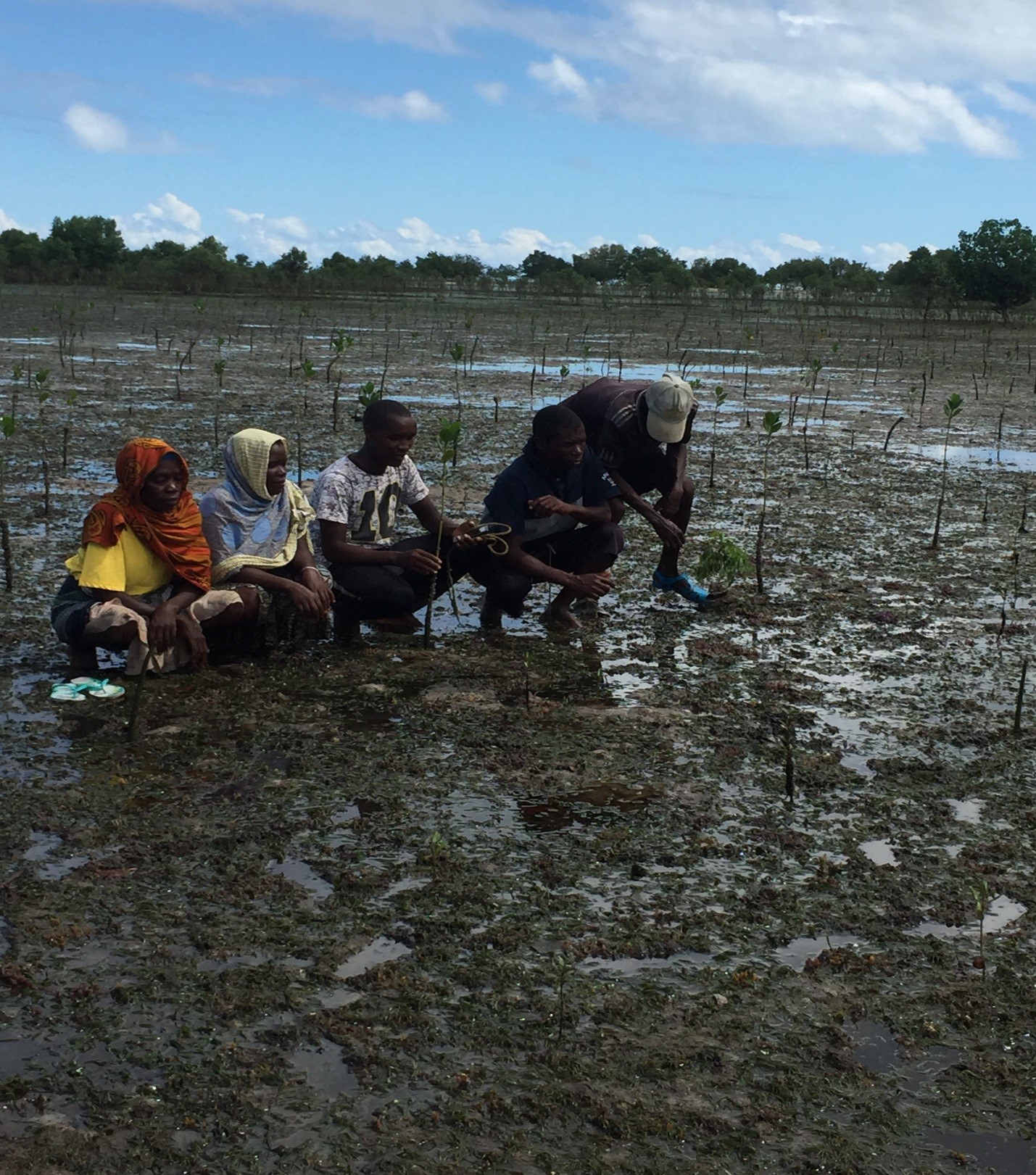Balancing Mafia Island's inhabitants' needs and conservation imperatives
Mangrove restoration
Mafia Island Marine Park
The MIMP was established primarily to conserve biodiversity, and end highly destructive fishing practices used by migrant fishers. It was also in the interest of the local fishers. However, it was essential to take in account the inhabitants' needs and reliance on the natural resources. So, on one hand, the MPRU staff provided environmental conservation and awareness raising on resources use & management, and on the other hand, they improved the infrastructures for schooling, health and water supply. Law enforcement is also applied towards culprits and community members reluctant to follow the rules. In turn, the villagers who respect them are encouraged and praised.
- Support for children school fees so that they keep going to school.
- Village level infrastructures, such as dispensaries, classrooms, water supplies.
- Exchange visits organised for MIMP inhabitants to learn about success stories, such as seaweed women farmers in Zanzibar, in conservation activities in Mozambique
- Training on Community-based Natural Resources Management provided to community men and women, by designated college teachers.
- Benefit sharing mechanisms from conservation (total collection from tourism entry fees).
- Once communities see the benefits given by the Park, they fully engage and participate. Benefit sharing mechanism is key for success.
- People see that conservation brings benefits in terms of resources, such as good fish catch. It has attracted migrant fishers. However, local fishers engage and voluntarily report on illegal incidences, or migrant fishers without permits. Each village decides how many migrants they can accommodate.
- Once the students complete school, thanks to scholarship and sponsorship, they come back and work as village leaders, contributing towards putting effort in conservation, as well as their parents who see the benefits, also engage in conservation activities.

